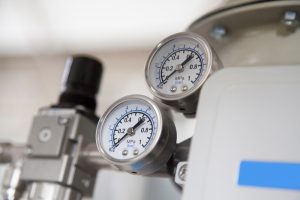 You may have been told before that your boiler is affected by boiler scale (or boiler deposits), but you’re not sure whether to take this issue seriously. Scaling in boilers is actually an incredibly common problem. High levels of minerals in the water, such as calcium and magnesium, get left behind in the boiler tank and tubes, which may lead to a reduction in heat along with a loud banging noise, in some instances.
You may have been told before that your boiler is affected by boiler scale (or boiler deposits), but you’re not sure whether to take this issue seriously. Scaling in boilers is actually an incredibly common problem. High levels of minerals in the water, such as calcium and magnesium, get left behind in the boiler tank and tubes, which may lead to a reduction in heat along with a loud banging noise, in some instances.
If this is such a common occurrence, is it really dangerous for your boiler? In most cases, yes! A boiler suffering from scale buildup is in danger of breaking down or leaking water into your home, both of which require immediate heating repair. Learn more about these issues in the following guide, and call us in if you suspect an issue.
What Boiler Scale Looks Like
Have you ever seen white or yellowish buildup around a faucet or showerhead? This is the result of hard water, and its deposits are known as scale. Now, picture this same scaling inside of the tank of your boiler or the pipes that move hot water around the home.
At first, small chunks of granular deposits may collect at the bottom of the boiler tank. But with time, these deposits coat the tank and tubes, adding an extra layer to the inside. The longer boiler scale goes on, the tougher it is to remove.
How It Damages the Tank
Boiler scale can do a lot of damage to the tank of your hot water boiler. As sediment settles at the bottom of the tank, it becomes more difficult for the burners to heat the water. That’s why you may notice a boiler with scaling does not keep you as warm as it once did.
As heat attempts to reach the water, bubbles may escape through the tank, rattling the sediment. This sediment can wear down the lining of the tank, allowing for corrosion to happen much sooner than usual.
How It Damages the Tubes
That same scaling also damages the tubes and pipes that allow water to move from the boiler to the rooms of your home. The scaling acts as an insulator that keeps heat from moving properly throughout the home. This may eventually cause the tube to overheat and crack. Otherwise, scale builds up to the extent that it completely blocks water from moving through the pipes, which causes trouble for the whole system.
Keeping Scale Under Control
The best way to control scaling is to ensure the water entering the boiler is as clean as possible. A qualified technician can let you know of all of the ways to get demineralized feedwater going into your boiler. There are systems that connect directly to the boiler, chemicals you can add to it, or whole-house water softeners that protect the water quality and piping throughout the home.
In any case, you should always work with a qualified HVAC technician for boiler repair in Upper St Clair, PA, and you’ll find some of the best at Boehmer Heating & Cooling. Contact us today!

